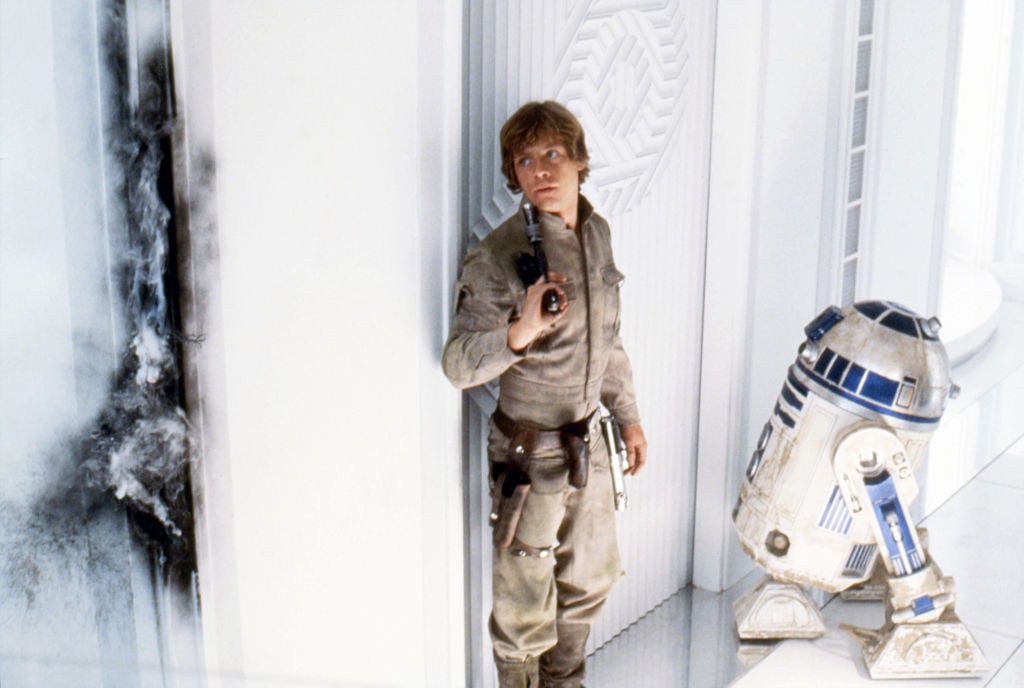‘Star Wars’ and ‘Star Trek’ Have Something Essential in Common — and It’s the Reason They’re Both So Loved
The battle between Star Trek fans and Star Wars fans has been raging since the latter was released in 1975. Although the franchises are different in tone and execution, the space sagas garnered similarly passionate fanbases. However, while both franchises deal with space, aliens, and intergalactic war, they also deal with real-world issues that still resonate to this day.

Intergalactic inclusion
Star Trek was revolutionary in more ways than one when it first hit the airwaves. Not only was it one of the first shows to explore the realm of outer space in new and exciting ways, but it also did so while tackling significant issues in the process. It had a diverse cast of characters ranging from the Japanese Mr. Sulu and Lieutenant Uhura. Uhura made history when she kissed Captain Kirk — the first interracial kiss in television history, according to Hollywood Reporter. While that may seem like no big deal now, at the time, it was controversial.
Star Wars has grappled with inclusion throughout its background. It tells the story of a poor orphan who bypasses all of life’s hurdles to become the face of a revolution. More recently, that same mindset has expanded to include a diverse cast of characters whose racial makeup, religious backgrounds, sexuality, and genders don’t mean anything — as long as they work together for the right cause.
With Star Trek, the Starship Enterprise worked well because a diverse cast of people each brought their own skills and backgrounds to make things happened. To this day that diversity is expanding through inclusive episodes of the show and scenes in the movies. The same goes for Star Wars. The shows do not stop with these social issues, however.
War in space
At the center of both series are running themes that surround war. The Star Trek crew is a gang of military members. In contrast, Star Wars title tells casual observers precisely what the franchise is about. Viewed through the lens of satire, both series are commenting on the world we live in by positing their characters into their war-torn fiction, according to The Perspective.
In Star Trek, violence is never the first option. In fact, most of the villains throughout the series are the ones who are warmongering and attacking the peaceful good guys. The crew of the Starship Enterprise would rather fight a battle of the wits than with their swords. Jean-Luc Picard was especially good at this method.
Star Wars, on the other hand, dealt with war on a bigger scale. The entire galaxy is at war throughout the series. While there are stunning scenes of lightsaber battles and dogfights, the message of the series is not necessarily pro-war. The protagonists of the Star Wars movies are often fighting against a regime that is hellbent on destruction and only fights to get to peace.
Star Trek came at the height of Vietnam when attitudes on war were shifting toward the negative. Years later, as reported by History, George Lucas cited the aftermath of Vietnam, World War II, and humanity’s penchant for violence as inspiration for the galaxy far away.
Doing what is right
Attached to the themes of war and violence are ideas of greater issues, too. Themes of imperialism and industrialism poke their heads into the franchise to this day. Greed, on top of war, is the number one motivator throughout the franchise. The show’s protagonists grapple with this in a down-to-earth way that audiences can relate to.
Like it did with war, Star Wars shows what happens when the oppressed are push too far, according to Vox. From the Jawas to the Wookies, Gungans to the Jedi — those fighting for goodwill stop at nothing to get rid of the evil oppression, slavery, and government malfeasance that plagues the galaxy.
Star Wars and Star Trek are popular for many reasons. They offer vivid universes that audiences can relate to while also being fantastical by nature. Beneath all of these are franchises that put the mirrors up to the audience and force them to ask how their universe is any different. This, more than anything else, might be the key to all the fandom they entail.


